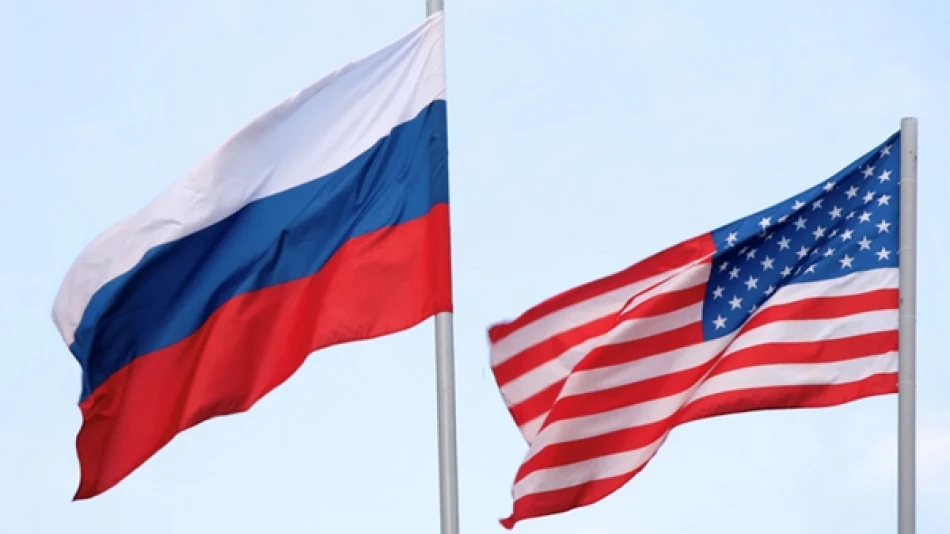
US and Russia Affirm Commitment to Successful Alaska Summit
Trump-Putin Alaska Summit Takes Shape as Top Diplomats Coordinate High-Stakes Meeting
The United States and Russia are advancing preparations for a potentially pivotal summit between Presidents Donald Trump and Vladimir Putin in Alaska, following high-level diplomatic coordination between their foreign ministers. The meeting signals a renewed attempt at direct superpower diplomacy amid ongoing global tensions and could reshape US-Russia relations in Trump's new term.
Diplomatic Groundwork Intensifies
Secretary of State Marco Rubio held telephone discussions with his Russian counterpart Sergey Lavrov to establish the framework for the presidential encounter. The conversation focused on ensuring the summit's success, with both sides demonstrating unusual commitment to the diplomatic process.
State Department spokesperson Tammy Bruce confirmed that both foreign ministers reaffirmed their dedication to making the Alaska meeting productive, suggesting both Washington and Moscow view this as a critical opportunity for bilateral engagement.
Strategic Significance of Alaska Venue
The choice of Alaska as the meeting location carries symbolic weight, echoing historical precedents of US-Russia diplomacy on neutral or strategically significant terrain. Alaska's unique position—once Russian territory sold to the United States in 1867—provides a geographically and politically appropriate backdrop for renewed dialogue between the two nuclear powers.
This venue selection also mirrors successful summit diplomacy of previous decades, when carefully chosen locations helped facilitate breakthrough agreements between superpowers.
Market and Global Implications
Financial markets typically respond to major diplomatic developments between nuclear powers, particularly given both countries' influence on global energy markets, defense spending, and regional stability. A successful summit could potentially ease sanctions regimes, affect energy trade patterns, and influence defense contractor valuations.
Energy sector implications are particularly significant, as improved US-Russia relations could reshape global oil and gas dynamics, potentially affecting European energy security calculations and Middle Eastern geopolitical alignments.
Diplomatic Reset or Routine Engagement?
The coordinated preparation effort suggests both administrations are treating this as more than routine diplomatic contact. The involvement of top-tier officials and the emphasis on "ensuring success" indicates substantive agenda items are likely under consideration.
Unlike previous Trump-Putin encounters that often appeared improvised or reactive, this Alaska summit appears to follow traditional diplomatic protocols, with careful advance work by foreign ministry professionals. This approach could signal a more structured approach to US-Russia relations in Trump's current term.
The success of these preparatory talks will likely determine whether the Alaska summit produces concrete agreements or remains largely symbolic, making the Rubio-Lavrov coordination a critical foundation for any potential breakthrough in superpower relations.
Most Viewed News

 Layla Al Mansoori
Layla Al Mansoori






